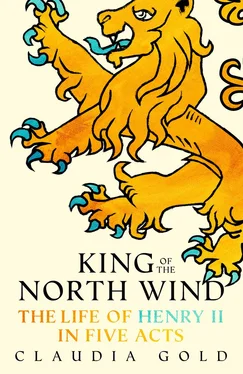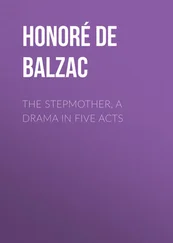Eleanor of Aquitaine: Henry’s wife, previously married to Louis VII of France; duchess of Aquitaine, the largest and wealthiest province in France, in her own right. She is about eleven years older than Henry.
William of Poitiers: Henry and Eleanor’s eldest son, who dies aged three.
Henri the Young King : Henry and Eleanor’s second son; charming, frivolous, the family ‘golden boy’. Crowned alongside his father in 1170, but given no authority.
Richard: Henry and Eleanor’s third son, destined to rule in Aquitaine.
Geoffrey: Henry and Eleanor’s fourth son; duke of Brittany.
John: Henry and Eleanor’s fifth son and last child, later known as ‘Lackland’; Henry’s favourite legitimate son.
Matilda of Saxony: Henry and Eleanor’s eldest daughter; married to Henry the Lion, duke of Saxony. Her beauty inspires the troubadour poet Bertran de Born to write scandalous verse about her.
Young Eleanor: Henry and Eleanor’s second daughter; married to Alfonso VIII of Castile.
Joanna: Henry and Eleanor’s youngest daughter; married to King William ‘the good’ of Sicily. Later, she is touted as a possible bride for Saladin’s younger brother.
Robert, earl of Gloucester: Eldest illegitimate son of Henry I, one of the greatest magnates in England, and Henry’s uncle. Robert fought for Henry’s rights to rule alongside his half-sister, Matilda.
Reginald, earl of Cornwall: Another illegitimate son of Henry I. Unwavering in his support for his nephew.
Geoffrey Plantagenet: Henry’s eldest illegitimate son; probably his favourite and best-liked child.
Matilda, prioress of Barking Abbey: Henry’s illegitimate daughter, born before his marriage to Eleanor.
William Longsword, earl of Salisbury: Another of Henry’s illegitimate children, born in the 1160s.
Morgan, provost of Beverly , and bishop-elect of Durham: Possibly Henry’s youngest illegitimate child, born in the mid-1170s.
Baldwin, ‘the leper king’: Henry’s first cousin, king of Jerusalem. He rules a kingdom riven with byzantine factionalism.
Marie: Eleanor’s eldest daughter by Louis, married to the count of Champagne.
Alix: Eleanor’s second daughter by Louis. She is married to the count of Blois.
Margaret of France: Louis’ eldest daughter by his second wife, Constance of Castile. Margaret is married to Henri, Henry and Eleanor’s eldest surviving son.
Alice of France: Margaret’s sister; betrothed to Henry’s son, Richard. Possibly Henry’s mistress.
Friends
Adelard of Bath: One of Henry’s four teachers, he brought knowledge of Arabic mathematics to England.
William of Conches: Another of Henry’s teachers, and one of Europe’s most celebrated scholars.
William Marshal: ‘The greatest knight in the world’, who served Henry and his family for over fifty years.
Rosamund Clifford: Henry’s favourite mistress, ‘the love of his life’.
Richard de Lucy: Henry’s co-justiciar and one of his great magnates.
Robert, earl of Leicester: Henry’s other co-justiciar; an enormously powerful nobleman.
Ranulf de Glanville: Justiciar in the latter part of Henry’s reign; possible author of On the Laws and Customs of England , which details the reforms under Henry’s reign that would become the foundations of English Common Law.
Richard FitzNigel: Henry’s treasurer and author of the influential Dialogue Concerning the Exchequer .
Brian Fitz Count: Illegitimate son of the duke of Normandy, and one of Matilda’s closest allies. They were possibly lovers.
Foes
King Stephen: Matilda’s first cousin and mortal enemy. He stole the throne from her.
Matilda of Boulogne: Stephen’s queen, a warrior for his cause.
Eustace: Stephen’s eldest son and heir, who tries to murder Henry.
William: Stephen’s second son; plots to murder Henry, although in secret.
Louis VII of France: Eleanor’s first husband and Henry’s overlord for his lands in France.
Bernard of Clairvaux: King Louis’ closest advisor. Loathes Henry and his Angevin family, believing them to be descended from the Devil.
Thomas Becket: Henry’s chancellor, and then archbishop of Canterbury.
Philip of France: A machiavellian boy-king, and Henry’s nemesis.
Fairweathers
Philip, count of Flanders: Henry’s first cousin, oscillates between fighting Henry and being his ally.
Bishop Henry of Blois: Henry’s cousin, the bishop of Winchester; notorious for changing sides during the civil war, Henry never quite trusts him.
Count Raymond V of Toulouse : Henry’s slippery adversary in the south, he vacillates in pledging his allegiance to Louis, and to Henry. Nevertheless, it is Raymond who warns Henry of impending disaster.
William the Lion: King of Scotland, and Henry’s cousin.
Frederick Barbarossa (Red Beard): The Holy Roman Emperor. Barbarossa’s life mirrors Henry’s in many ways.
Pope Alexander III: Pope during the Becket crisis, but living in France, Alexander is torn between his host Louis, and Henry, who has pledged to support him against an antipope.
Hugh Bigod: One of Henry’s most powerful lords, Hugh virtually controls East Anglia.
Chroniclers
Orderic Vitalis: An Anglo-Norman historian, Benedictine monk and author of the Ecclesiastical History .
Robert of Torigni: The librarian of Bec monastery in Normandy, abbot of Mont Saint-Michel. Henry’s friend and the godfather of young Eleanor.
Roger of Howden: Court clerk, diplomat and itinerant justice, who spent many years in Henry’s company.
William of Newburgh: Historian and Augustinian canon; one of the most balanced writers of Henry’s reign.
Jordan Fantosme: Court clerk, historian, and author of an epic Anglo-Norman poem, chronicling Henry’s war in the 1170s.
William FitzStephen: One of the biographers of Thomas Becket.
Walter Map: Court clerk and author of Courtiers’ Trifles .
Gerald of Wales: A luminous and fanciful writer, who hated Henry in part because he believed he deserved a bishopric, which Henry failed to grant him.
Gervase of Canterbury: Historian, and monk of Canterbury Cathedral.
Ralph Diceto: Dean of St Paul’s, and historian.
Henry of Huntingdon: Historian and author of the Historia Anglorum .
John of Salisbury: One of the greatest writers of his age; a fierce defender of Thomas Becket.
Ralph Niger: A partisan of Thomas Becket; like Gerald of Wales, he detested Henry.
They would not let Will leave. The play had finished fifteen minutes earlier. But still 3,000 people roared in delight and begged the players and playwright to remain. They took bow after bow to the din of stamping feet. London’s richest – sat in the luxurious gallery – mixed with its poorest, who had paid a penny to stand. Will had made them believe that ‘this cockpit’ held ‘the vasty fields of France’ and of England too.
It was May 1599. William Shakespeare’s History of Henry II was the first play to be staged at the Globe at its new site on the south bank of the river in Elizabeth I’s capital city; it offered fantasy by candlelight under a ceiling painted as the heavens.
Читать дальше












